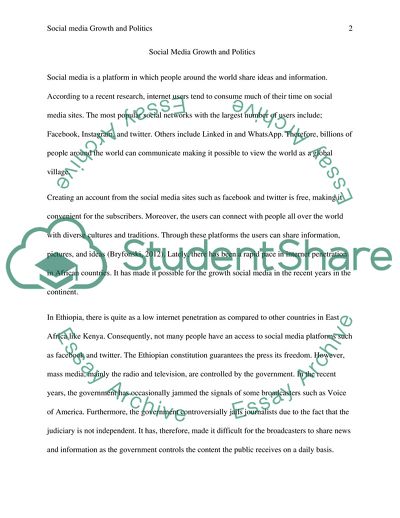Cite this document
(Social Media Growth and Politics in East Africa Term Paper, n.d.)
Social Media Growth and Politics in East Africa Term Paper. https://studentshare.org/politics/1851555-social-media-growth-and-politics-in-east-africa
Social Media Growth and Politics in East Africa Term Paper. https://studentshare.org/politics/1851555-social-media-growth-and-politics-in-east-africa
(Social Media Growth and Politics in East Africa Term Paper)
Social Media Growth and Politics in East Africa Term Paper. https://studentshare.org/politics/1851555-social-media-growth-and-politics-in-east-africa.
Social Media Growth and Politics in East Africa Term Paper. https://studentshare.org/politics/1851555-social-media-growth-and-politics-in-east-africa.
“Social Media Growth and Politics in East Africa Term Paper”. https://studentshare.org/politics/1851555-social-media-growth-and-politics-in-east-africa.


